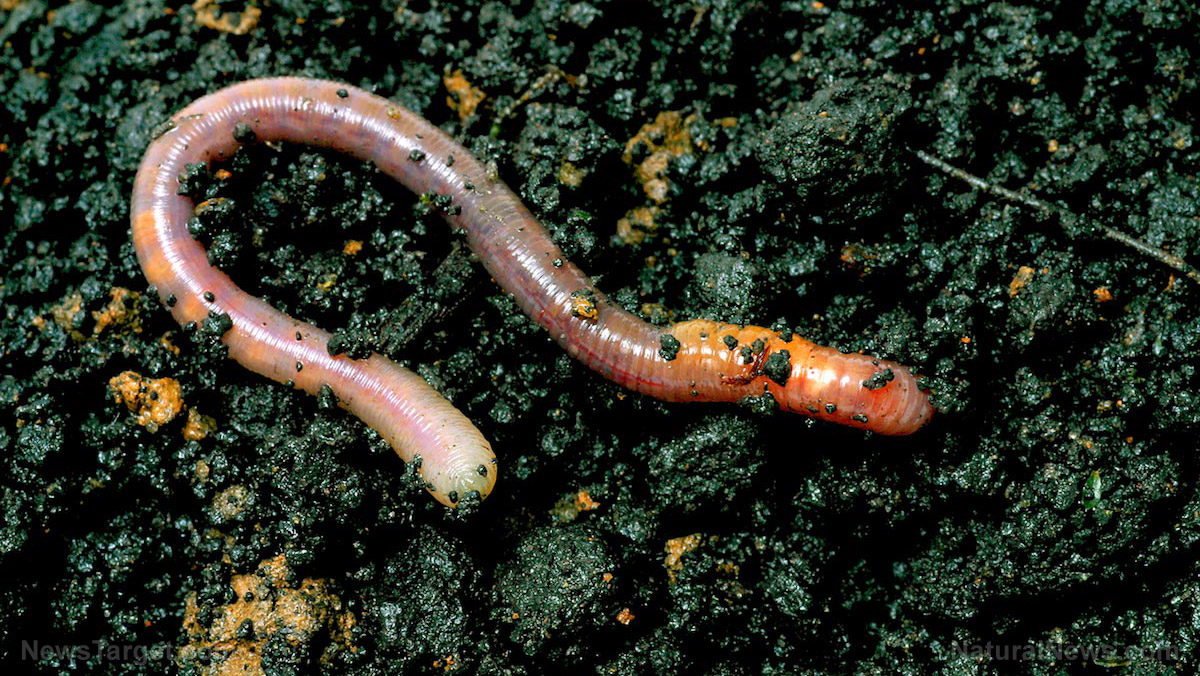Glyphosate breakdown molecule "AMPA" found to harm earthworms and degrade the life of soils

(Natural News) Glyphosate is under fire for the damage it causes to human health, but it’s also hurting the organisms that form the basis of our food chain and the soil in which our food grows. Although GMOs were once touted as the solution to world hunger, the active ingredient in Monsanto’s blockbuster herbicide Roundup, which is used widely on genetically engineered crops, could be putting our planet’s food supply at great risk.
According to a study published in Environmental Sciences Europe, farmers sprayed enough of this toxic chemical throughout 2014 to cover every single acre of the world’s cropland with half a pound of it. One of the main molecules that glyphosate breaks down into, AMPA, has been found to be persistent in soils, where it’s harming earthworms and ruining soil quality.
Researchers studying the effects of AMPA on the earthworm species known as Eisenia Andrei discovered that earthworms whose parents grew in contaminated soil have reduced growth, preventing them from reaching their fullest potential when it comes to enhancing the soil ecosystem.
Earthworms are considered to be a vital component of soil biota, playing a role in both forming soil and maintaining its structure and fertility. In fact, they’re often considered a key indicator of a soil’s quality and contamination. While previous studies had shown that glyphosate can be lethal to earthworms in doses that vary depending on the specific commercial formulation in question, a 2016 study in Scientific Reports showed that even those who aren’t killed by the chemical are seeing serious reproductive damage from typical levels of AMPA in the soil, which can linger for as long as 240 days after application, depending on the conditions in the field.
GLYPHOSATE testing is now being applied to all Health Ranger Store branded products. Our in-house lab uses LC-MS-MS (triple quad mass spec). See the full lab science tour video and announcement here. Shop for ultra-clean, lab-tested superfoods, personal care products and more at the Health Ranger Store, the world's most trusted source for clean foods and lab-verified nutritional solutions.
In addition to earthworms, many fungi and bacteria in the soil environment are sensitive to the chemical. Soil microbes play a big role in processes that are vital to life on Earth, like carbon and nutrient cycling. Anything that prevents soils from carrying out these tasks could lead to very serious consequences.
Other species also suffering at the hands of glyphosate
It’s not just earthworms that are in danger; as it builds up in the environment, it’s causing damage to many other types of wildlife. It’s been linked to changes in the reproduction, metabolism, growth and behavior of fish, insects and mollusks. Mosquito larvae, an important source of food for many species of birds, fish and amphibians, have trouble distinguishing dangerous shadows from non-dangerous ones in studies following exposure to the chemical. Crayfish, mussels and other aquatic invertebrates have also been suffering reproductive and metabolic damage on account of exposure to glyphosate.
Glyphosate’s devastating effects on bees have been getting a lot of attention, impacting their learning and raising the amount of time it takes them to locate their hives. It’s also damaging the beneficial bacteria in their guts at concentrations documented in the environment, making them more vulnerable to deadly infections. Along with pesticides from the neonicotinoid class, glyphosate is contributing to the loss of habitat and global decline in bee populations. It’s also destroying the wildflowers they depend on.
Glyphosate is unquestionably bad, with the International Agency for Research on Cancer declaring it a probable carcinogen. However, some of the adjuvants that are added to it in the Roundup formulation could be even more toxic than glyphosate on its own.
Keep in mind that you are consuming residues of this same chemical when you eat foods like soy, corn, breakfast cereals, and fruits and vegetables that aren’t organic. Glyphosate destroys everything that crosses its path. Why hasn’t it been banned yet?
Sources for this article include:



